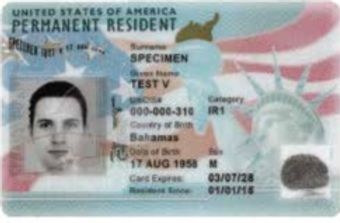Navigating life as a documented immigrant brings a unique set of challenges. One of the most intimidating aspects can be an encounter with U.S. Immigration and Customs Enforcement (ICE) agents. Knowing your rights and understanding how to respond can help prevent unnecessary detention or complications. This post provides crucial tips to prepare for encounters with ICE agents, ensuring you respond with confidence and clarity.

Stay Calm and Assess the Situation
Encountering ICE agents can provoke anxiety or fear. However, it is essential to remain calm and assess what’s happening. Take a deep breath, gather your thoughts, and keep a respectful distance while listening to the agents. Keep your hands visible, do not run or argue, and remain composed.
If you feel comfortable, consider recording the interaction on your smartphone. Approximately 73% of individuals who recorded their encounters reported feeling more secure, as documentation can provide evidence of your rights during the interaction.

Know What to Say
Having a respectful, prepared response can significantly impact how the interaction unfolds. You might say, “I prefer not to answer any questions without my lawyer present.” This communicates that you are aware of your rights and not willing to engage without legal advice.
Maintaining a calm tone is critical. Aggressive responses can escalate situations unnecessarily. Focus on delivering your message clearly while staying composed.
Carry Important Information and Phone Numbers
Before leaving home, it’s wise to have essential information ready. Carry important legal documents, your attorney’s contact information, and emergency numbers. Keeping these items accessible allows you to present documents quickly or reach your lawyer when needed.
If you have valid Immigration Status, such as:
- a green card,
- asylum or refugee status,
- a valid student or other visa, or
- unexpired TPS (Temporary Protected Status)
The law says you must carry with you your lawful permanent resident card or immigration papers that show your status. If law enforcement asks to see your papers, show them your copy. Do not carry foreign papers that could be used against you if you are detained.
Memorize the phone numbers you might need to call in an emergency, such as a friend or relative or your legal counsel. Provide your child’s school with an emergency contact, and arrange written authorization for medical and legal decisions for your child.
Consider creating a digital or physical “ICE Encounter Plan” that includes your rights, support network contacts, and essential documents. Secure this information in your wallet or phone for easy access.

Educate Your Family and Friends
It’s vital not only to prepare yourself but also to educate family and friends about potential ICE encounters. Ensure that everyone knows what to say and do if approached by ICE agents in public or during gatherings.
Conducting practice scenarios can empower everyone involved. Make sure they understand their rights and the importance of staying calm under pressure.
Connect with Local Resources
Finding and connecting with local organizations that support immigrants can enhance your security. Many communities have helpful resources, such as legal aid hotlines and immigrant support groups. These organizations offer guidance and reassurance, so you know support is available if needed.
Review the web sites of trusted sources, such as the National Immigrant Justice Center (https://immigrantjustice.org/), the ACLU (American Civil Liberties Union) (https://www.aclu.org/), AILA (American Immigration Lawyers Association) (https://www.aila.org/), and the National Immigration Law Center (https://www.nilc.org/), to help you navigate encounters with ICE or other law enforcement.
Attending workshops about your rights and responsibilities as an immigrant can empower you further. For instance, participating in a local rights awareness session can increase your knowledge, helping you navigate uncertain situations more effectively.
Share Your Experience
Sharing your experiences with ICE can foster awareness in your community and prepare others for similar encounters. For example, after an instance with ICE, discussing your experience with friends or at community meetings can highlight essential information about rights.
By connecting with local advocacy groups, you can join forces with others who share similar experiences and work toward meaningful change, raising insights about immigrant rights.
Consider Legal Counsel
If you believe your circumstances warrant it, seeking legal counsel is highly recommended. An immigration attorney can offer specific advice tailored to your needs, helping you understand the intricacies of the law.
Having a legal expert can empower you and reduce anxiety around ICE interactions. They can help you devise a solid strategy for future encounters, ensuring you remain informed and secure.
Be Mindful of Your Surroundings
While you cannot avoid every potential encounter with ICE agents, staying aware of your environment can help minimize risk. Avoid known hotspots for ICE activity, such as certain neighborhoods where enforcement is common.
Staying updated about ongoing operations or events that may increase ICE enforcement can help you prepare should an encounter happen. Awareness allows you to take proactive steps for your protection.
Helpful Takeaways: Be Prepared in Advance of ICE Encounters
Preparing for encounters with ICE agents is essential for documented immigrants. By understanding your rights, staying composed, and equipping yourself with necessary information, you can confidently navigate these situations. With the right preparation and knowledge, immigrants can reduce risks and uphold their rights even in challenging circumstances.
Remember, it is vital to share this knowledge within your community. Collectively, with informed vigilance and support, you can navigate the complexities of immigration with improved ease and confidence.

By following these tips and being proactive, documented immigrants can contribute to a more informed community, ultimately empowering themselves and others facing similar situations.







